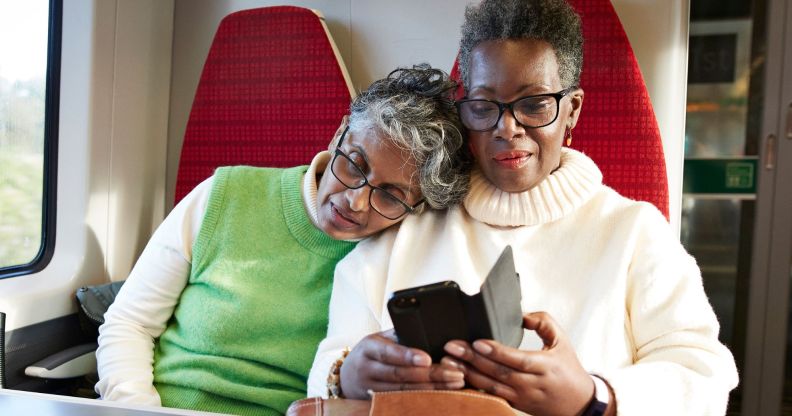LGBTQ+ people far more likely to face poverty in retirement, data finds

Nearly half of LGBTQ+ people will struggle to afford essentials when they reach retirement age, according to new data. (Getty Images)
LGBTQ+ people are significantly more likely than the general population to be headed towards a meagre retirement, according to new UK data.
Near half of LGBTQ+ people in Britain will struggle to afford heating and food when they reach retirement age, as their medium income is projected to be a measly £13,000 per year.
Research from the insurer and pension provider Scottish Widows has found that 44 per cent of people who identify as LGBTQ+ are not on track for even a minimum retirement lifestyle – which means they are “at risk of not covering [their] needs” when they are older.
Conversely, the national average for people who risk falling beneath this minimum retirement is just 35 per cent.
This led the researchers to conclude that LGBTQ+ people are “far more likely than the general population” to struggle.
Scottish Widows looked at measurements like the savings and pension plans and found that members of the LGBTQ+ community are more likely to fall behind in both areas.
The data, published in their latest retirement report, found that 36 per cent of LGBTQ+ people were not a member of any pension scheme, compared with 30 per cent of the wider population.
The rising cost of living has had an impact on saving for retirement, with almost one in five (18 per cent) LGBTQ+ people surveyed saying they have cut contributions into pension plans and similar schemes recently – compared with 12 per cent of the wider population.
Sixty-eight per cent of people from the community reported that they are worried about running out of money in retirement – higher than the national average of 57 per cent.
The LGBTQ+ community needs more help from employers and the pensions industry to reach a decent retirement, Scottish Widows’ managing director Emma Watkins said.
She added that it is a “huge area of concern” that almost one in five people from the community had felt the need to slash their pension contributions.
And it’s not just cutting down on pension contributions – LGBTQ+ people earn less on average and suffer mental health problems at a higher rate, making them more likely to need time out of work so they can’t pay into a pension even if they want to.
Stephanie Fuller, the chief executive officer at Switchboard, an LGBTQ+ helpline, said the findings were concerning, but not a shock.
“The financial issues faced by the community are indeed significant and multifaceted. LGBTQIA+ people are more likely to be estranged from family networks, for instance, and feel it necessary to change jobs more frequently due to issues arising from their sexuality or gender identity,” Fuller said.
She added that many trans people find they have to fun their own gender-affirming procedures, which means “that tomorrow’s money is often spent today, with few obvious avenues for people to remedy this.”
The Pensions and Lifetime Savings Association developed the “retirement living standards”, composed of minimum, moderate and comfortable. A single person needs about £12,800 a year to meet the “minimum” threshold.
The minimum scenario leaves a pensioner with only £54 a week for food and up to £580 a year for clothing and footwear. These figures assume a pensioner has no car, has paid off a mortgage and has no rental costs.
The thresholds for moderate and comfortable are £23,300 and £37,300 a year respectively.
The report also found that young people in their 20s are the least likely age group to be on track for even a minimum retirement lifestyle, and disabled people face significant challenges compared to non-disabled people.
How did this story make you feel?

